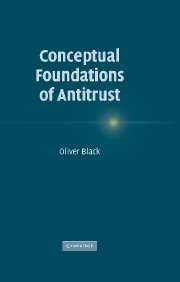4 - Agreements
Published online by Cambridge University Press: 08 July 2009
Summary
Overview
Article 81(1) EC prohibits agreements with an anticompetitive object or effect, but does not define ‘agreement’: the meaning of the word has been left to emerge from the case-law. The advantage of this approach is that it allows a term's meaning to develop to fit the cases' contours: that development could be hampered by an explicit definition which every decision or judgment had to be made to fit. One disadvantage is that definition through cases is a haphazard process which is swayed by the specific facts that come before the authorities: the features of those facts tend to gain undue prominence in the jurisprudence. Another is that, as the diversity of the cases increases, the term's meaning can come to lack conceptual unity: the term is applied to a congeries of situations that have little significant in common. ‘Agreement’ in EC antitrust arguably displays both these faults, particularly the second: the textbooks standardly say that the word has a wide meaning and go on to list the diverse states of affairs that have been brought under it. It is salutary, therefore, to step back from the cases' details and to reflect, at a more abstract level, on what an agreement is.
The first part of this chapter proposes two models of an agreement which develop the idea that an agreement exists where one party, X, gives a conditional undertaking and the other, Y, responds with an unconditional undertaking.
- Type
- Chapter
- Information
- Conceptual Foundations of Antitrust , pp. 94 - 140Publisher: Cambridge University PressPrint publication year: 2005



